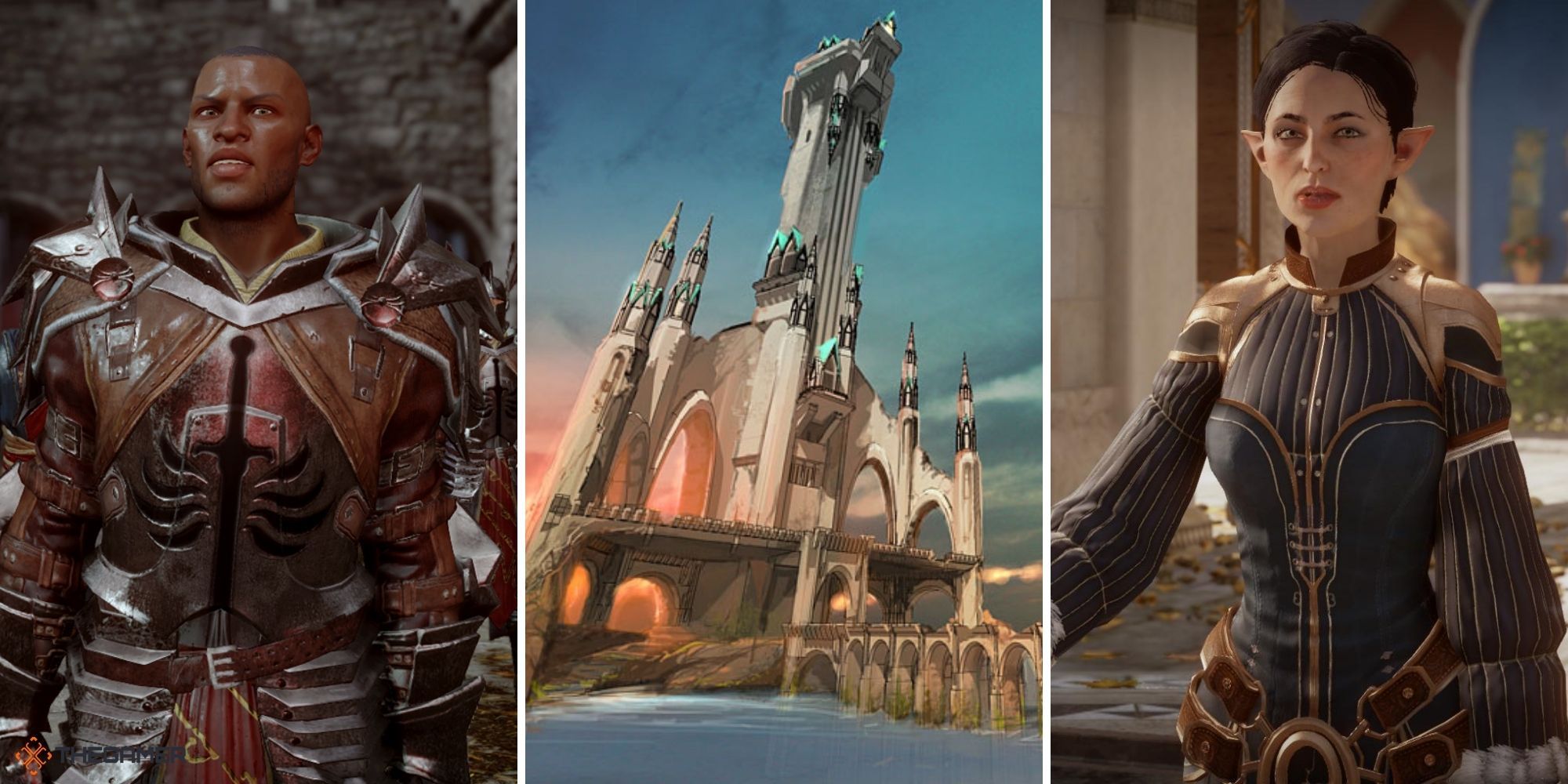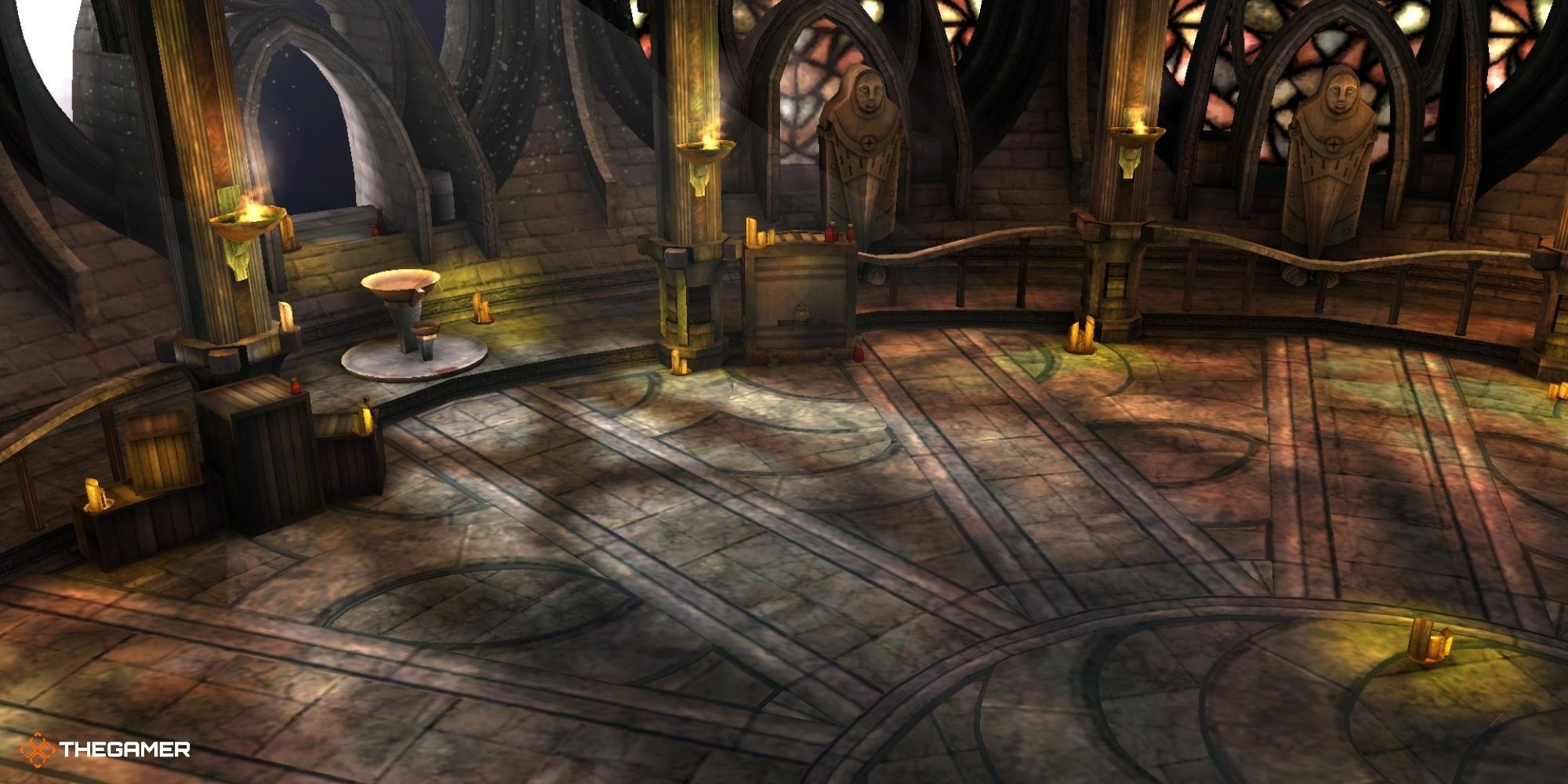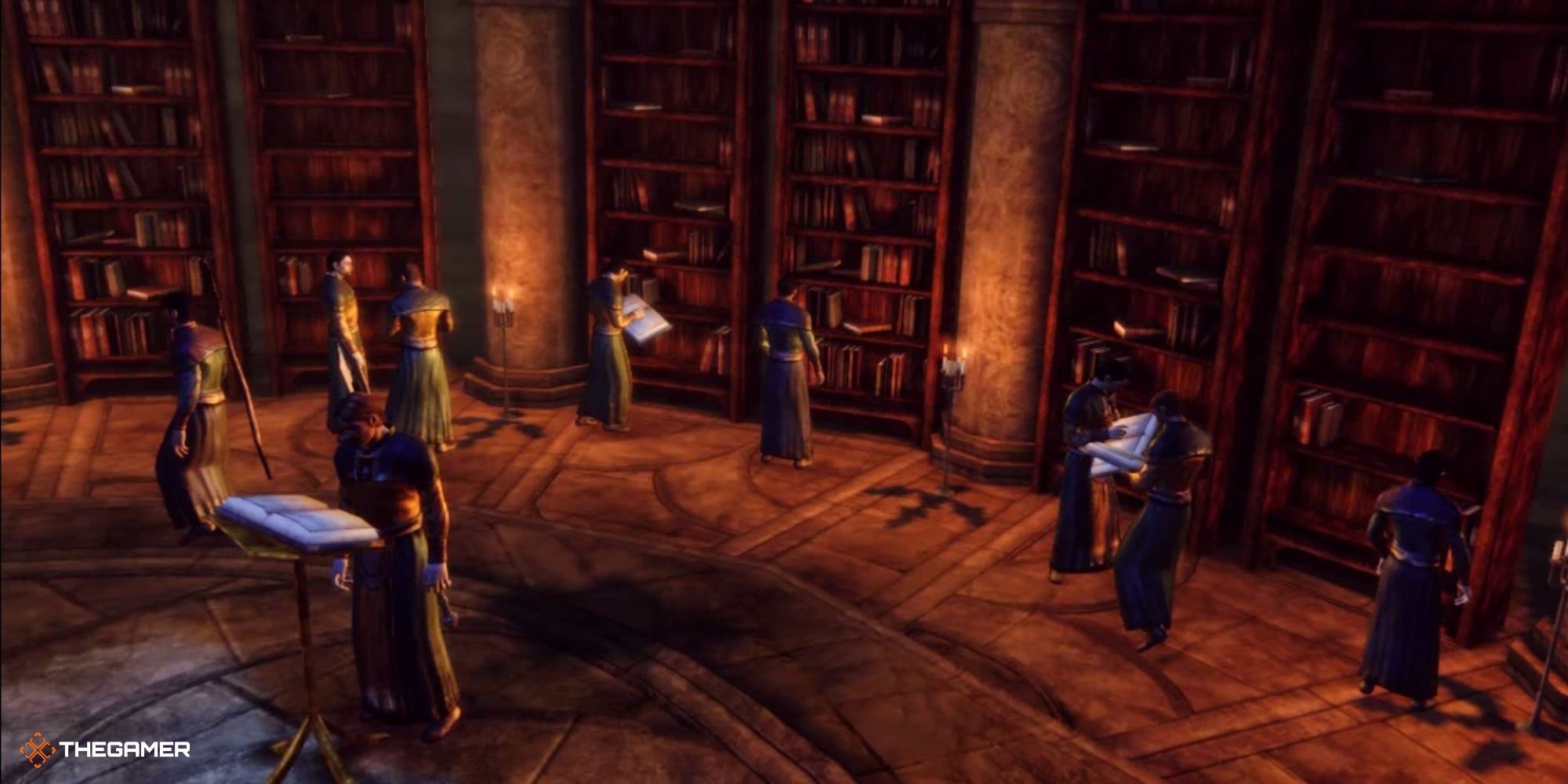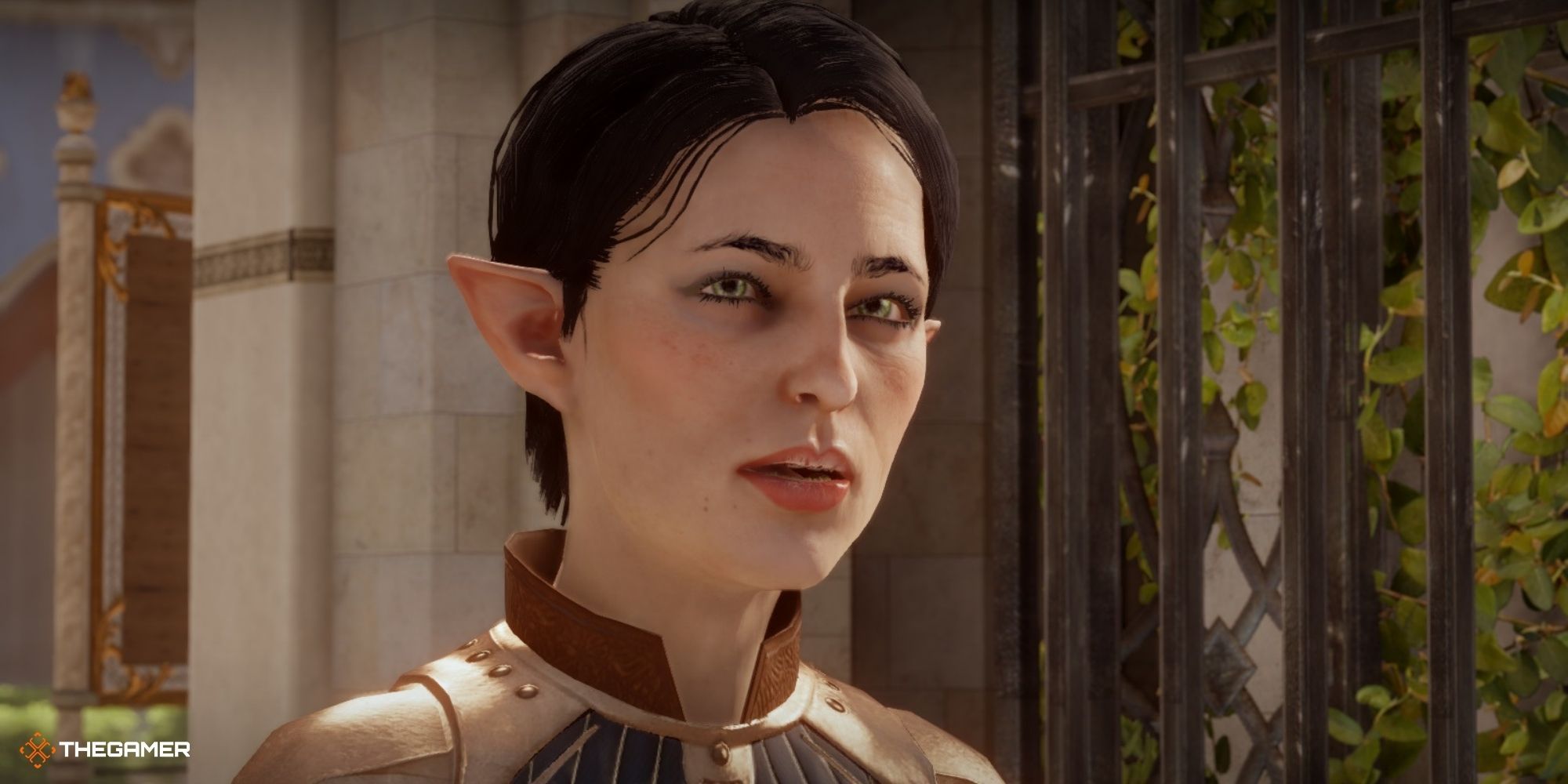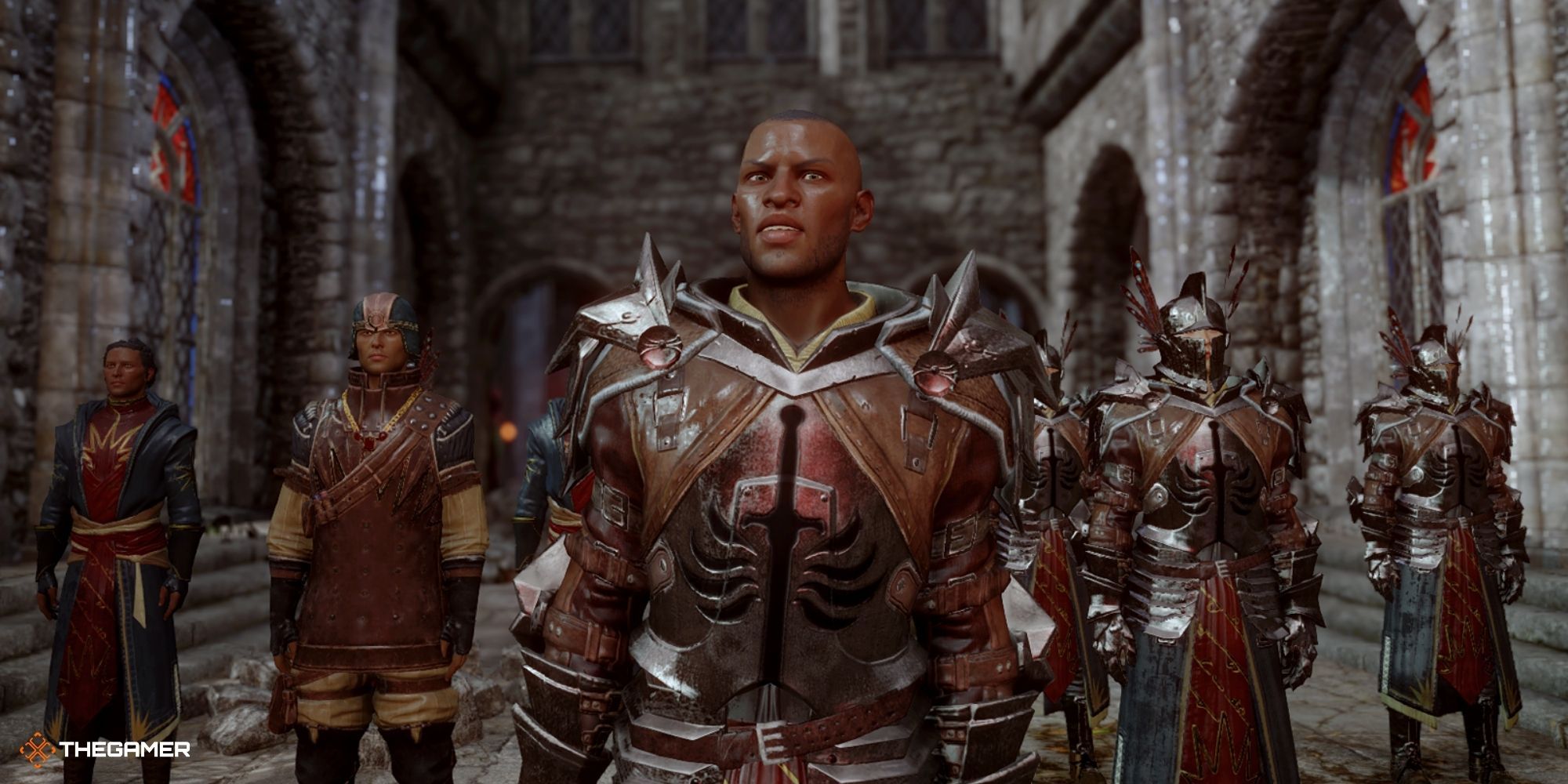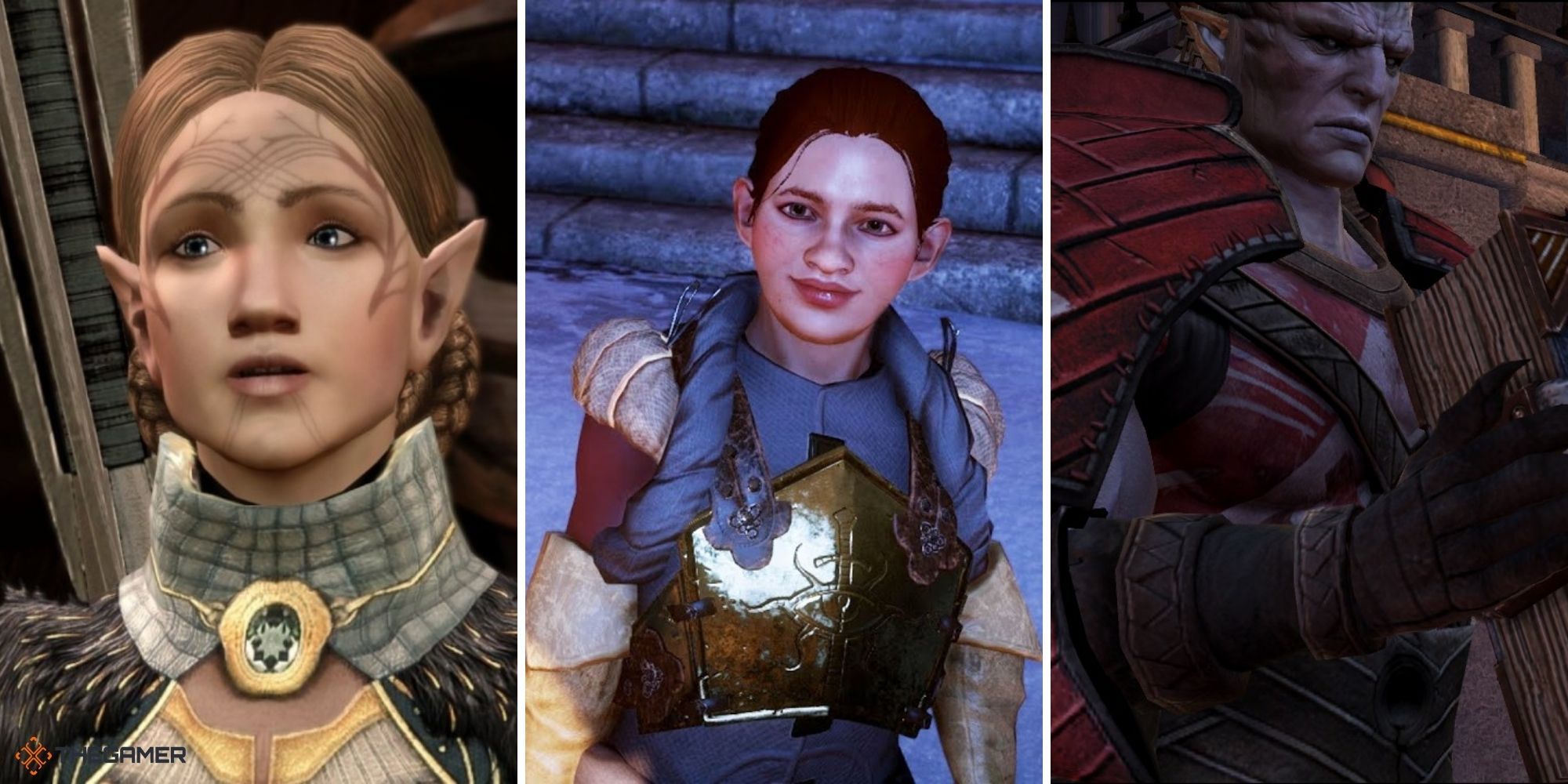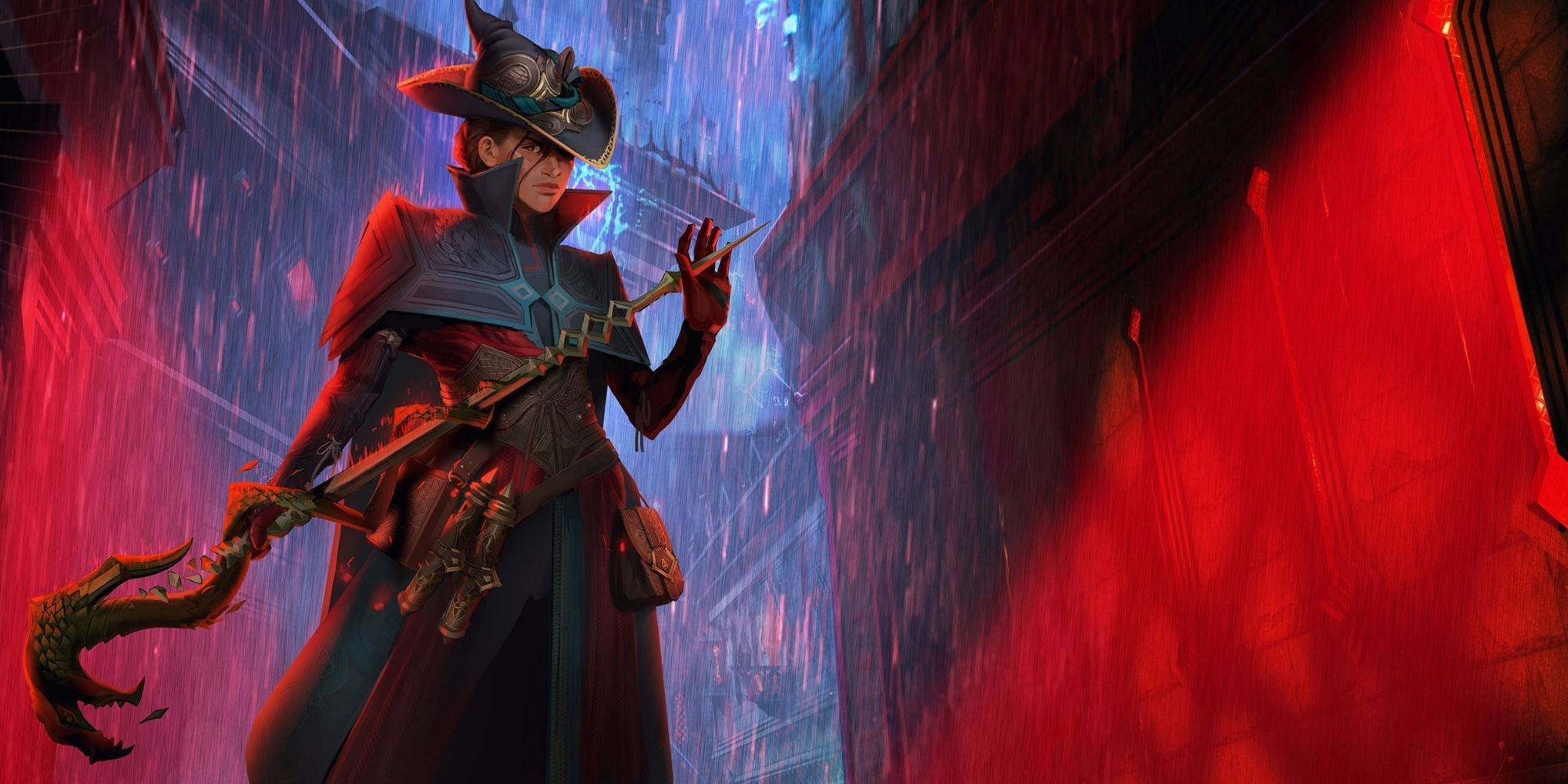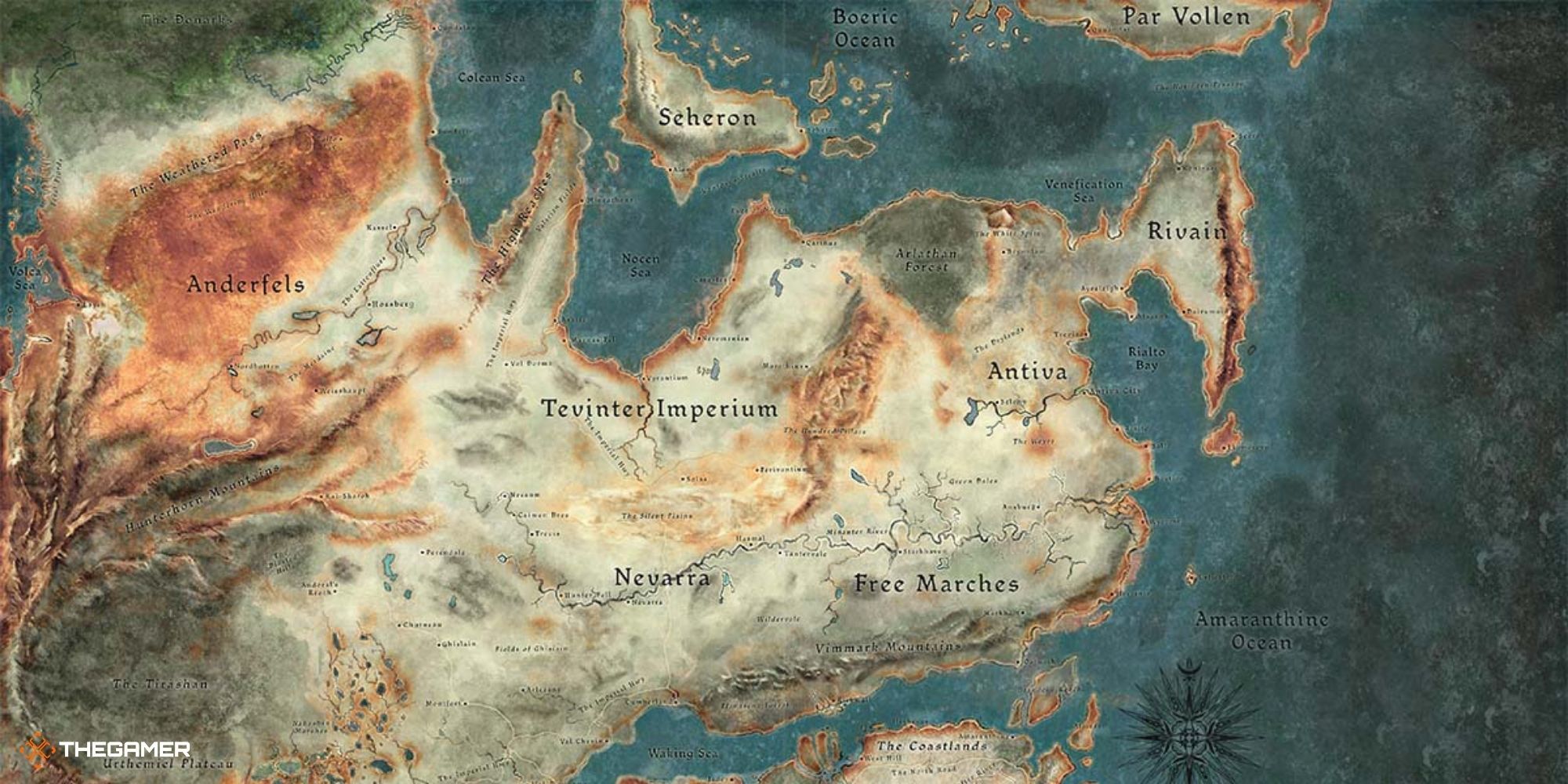Quick Links
In the fantasy world of Dragon Age, magic is a controversial topic. Those who wield it can cause terrible destruction without intending to, can become possessed by demons who would use their powers for evil, and more. There's a lot of fear.The Circles of Magi are designed to house, protect, and teach mages from any race, any gender, and any background. The truth, though, is a bit more complex. Today we're unpacking what you need to know about the Circles of Magi.
The Purpose Of The Circles
Technically, the Circles of Magi are all part of one unified organization dedicated to teaching magic users to control and wield their abilities. In practice, however, Circles are controlled by the Chantry.
The Circles in the south, which are run by the Orlesian Chantry, are as much for controlling and keeping track of mages as they are for teaching them. All mages are forced to live in the Circles and cannot leave without permission.
Education In The Circle
Young mages who join the Circle when they begin to exhibit magic are first taught discipline and control over their abilities. This helps to lower the risk of accidents, either at this young age or further along in their training.
Once they have those basics down, they start their more general training and learn specific spells. This process includes as much academic learning as it does practical work with spellcasting. If the young mage, called an apprentice, shows an aptitude for a particular kind of magic, like healing, they're often encouraged to specialize. The quality and type of education that apprentices receive can vary significantly between Circles.
When they are old enough and experienced enough, the apprentice goes through a rite of passage called The Harrowing. It is sprung on the apprentice without warning so that they cannot prepare. To pass, the apprentice must face off against a demon and prove that they can hold off this demon who is trying to possess them.
Circle Leadership And Hierarchy
- Grand Enchanter (an elected representative of all of the circles within the Orlesian Chantry, serves as advisor to the Divine)
- First Enchanter (leader of one circle)
- Senior Enchanter (several senior enchanters make up a small council, one council per circle)
- Enchanter (sometimes called Junior Enchanters — mages who teach apprentices and often specialize in a kind of magic)
- Mage (any resident of the Circle who has passed their Harrowing)
- Apprentice (mages who have not passed their Harrowing and are still learning magic)
The Templars
Templars are an elite group of warriors who are trained to defend against magic-users. They use unique abilities which allow them to counter magic.
Among the Templars' many duties are...
- Find young people who are exhibiting signs of magical abilities and bring them to the Circle
- Work within the Circle to protect mages, deal with possessions and other magical accidents, and create phylacteries
- Hunt down mages who manage to escape the Circle and eliminate them or return them to the Circle
- Hunt down apostates and eliminate them or bring them to the Circle
Though the southern Circles are allowed to run themselves, every decision is approved by a Templar first.
The Templar order has a reputation for being harsh. To tell the truth, the quality varies. In some Circles, the Templars are well-meaning people who want to protect mages. In others, the Templars despise mages, abuse them, and generally make their lives hellish.
The Circles' Relationships With Non-Human Races
City Elves
City elves are descendants of elves who surrendered during the war between the elves and humans. As part of their surrender, they agreed to follow human laws and follow the Chantry religion. Despite their supposed equality, a lot of stigma exists between the races and most city elves live in terrible poverty. As a result, city elves have a complicated relationship with Circles of Magi, which they see as direct offshoots of the Chantry. Some city elves, when their child begins to show their magical talent, will run away from their home and search for a Dalish Clan that's willing to take them in.
Dalish Elves
Officially, Dalish Keepers, Firsts, and Seconds (the mages in their clans) are apostates by the Chantry's definition. However, the Templars in some areas will not hunt down Dalish clans to take their mages, though hunting apostates is part of their duty. These Templars see it as unnecessarily antagonistic and they unofficially ignore those Dalish mages.
Among the Dalish, some clans hate the Chantry and the Templars for taking their magical brothers and sisters. Other Dalish elves think the Chantry isn't so bad, because they've experienced one of the clans where, if there is more than one young mage in a clan, one of them will be abandoned or given to another clan. This isn't the case in every clan, but there are huge differences among Dalish clans since they haven't been a coherent society in years.
Dwarves
Dwarves are incapable of magic, so they are never members of a circle. However, Dwarves mine an ore called lyrium, which mages use to fuel their abilities. Therefore, the Chantry and the Circles must maintain a positive relationship with the nearby Dwarves to ensure their supply of lyrium is never cut off.
Qunari
The Qunari do not leave Par Vollen, the island where their civilization is, very often. As a result, Qunari - and especially Qunari mages - are seldom seen in the south. In the Qun, mages are called Saarebas and are harshly bound to prevent the use of magic, including stitching their mouths shut. Since the Qun and the human nations are at peace, and the Qun deals with their mages harshly and does not allow them to run free, Templars don't hunt Saarebas as apostates. However, Tal-Vashoth (Qunari who left the Qun) who can wield magic would be considered apostates.
How Tevinter Circles Are Different
While most of the human nations view magic as dangerous and uncontrollable, needing to be controlled, the Tevinter Imperium is actually ruled by mages. This is cemented in their religious differences; in the south, all Circles are controlled by the Orlesian Chantry. However, in Tevinter, the Circles are controlled by the Imperial Chantry.
In Tevinter Circles, Templars work for mages, not the other way around. While they are theoretically meant to stop the Tevinter mages from going too far, they're paid off by the wealthy mage nobles and are essentially glorified lapdogs. Mages also aren't confined to living in Circles of Magi, nor are they forced to give up all their inheritance, like they are in other human nations.
There is a rank called "Magister" in the Tevinter Circles. This rank used to exist in other Circles, but was eventually removed. In Tevinter, Magisters rank higher than all others except one: the rank of Archon. The first Archon was the reason the Chantry split into two factions (Orlesian and Imperial). The Archon is the ruler of Tevinter and always a mage. When the first Archon founded the role, he turned everyone who was at the rank of Magister at the time into Tevinter's noble class. As a result, magical abilities are highly valued in their society.
Known Circles Of Magi
|
Nation |
City/Cities With A Circle |
Controlled By Which Chantry? |
|---|---|---|
|
Anderfels |
|
Orlesian |
|
Antiva |
|
Orlesian |
|
Ferelden |
|
Orlesian |
|
Free Marches |
|
Orlesian |
|
Nevarra |
|
Orlesian |
|
Orlais |
|
Orlesian |
|
Rivain |
|
Orlesian |
|
Tevinter |
|
Imperial |

